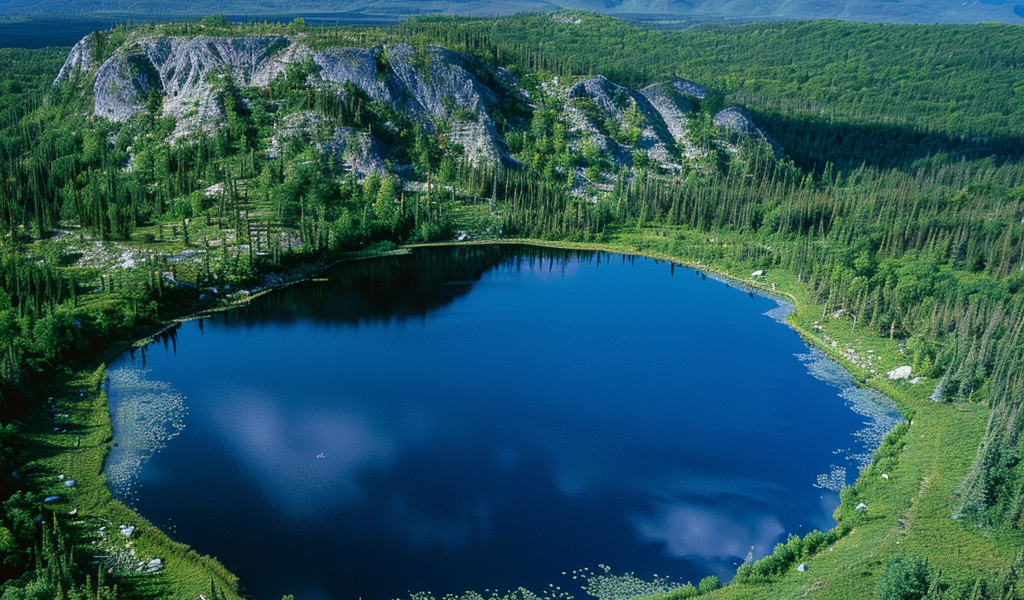In an intriguing discovery, a potential meteorite impact site has been identified in the Cote-Nord region of Quebec, Canada, thanks to the keen observation of local outdoor enthusiast Joel Lapointe. While searching for ideal camping locations, Lapointe stumbled upon a striking 15-kilometer-wide circular formation surrounding Marsal Lake, prompting him to reach out to geophysicist Pierre Rochette for further investigation.
Upon examining satellite images, Rochette and his team noted that the topography of the area strongly suggested an impact event. “Looking at the topography, it’s very suggestive of impact,” Rochette stated in an interview. If confirmed, this would mark the first new crater discovery since 2013, adding to the relatively small number of recognized impact sites worldwide.
Canada is home to 31 of the 200 known impact craters globally, making it a significant hotspot for such geological formations. Gordon Osinski, a professor of Earth sciences, explained that while Google Earth can reveal circular or semi-circular structures, most are not meteorite craters. He emphasized the rarity of confirmed craters, noting that the odds are against finding new ones.
Despite these odds, Rochette’s team is optimistic about their findings. They have begun analyzing samples from the Marsal Lake site and have already identified the presence of zircon, a mineral that typically forms as a result of major impact events. This finding strengthens the hypothesis that a meteorite may have created the ring of small mountains encircling the lake.
To substantiate their claims, researchers are focusing on identifying shatter cones, which are distinctive geological formations that occur in the bedrock beneath meteorite impact sites. According to Osinski, these cones serve as unequivocal evidence of a meteorite impact. The team has expressed confidence that the preliminary evidence supports the notion that Lake Marsal could become the 11th confirmed impact structure in Quebec.
In an analysis presented at the 86th Annual Meeting of the Meteoritical Society in 2024, researchers highlighted the potential significance of their findings. They indicated that further investigations are planned for 2025, during which the team aims to conduct additional tests and gather more data from the site.
If the site is indeed confirmed as an impact location, the next step for researchers will be to determine the timing of the meteorite strike. Tara Hayden, a member of the research team, expressed excitement about the connection that impact craters provide between Earth and the cosmos. “That’s the wonderful thing about impact craters. We get to have this link between Earth and the outside universe,” she remarked.
The discovery of the potential meteorite impact site in Quebec not only adds to the understanding of the region’s geological history but also highlights the importance of citizen scientists and enthusiasts in contributing to significant scientific research. As investigations continue, the Marsal Lake site could reveal new insights into the history of meteorite impacts on Earth and their implications for our planet’s geological evolution.
As researchers prepare for their upcoming fieldwork, the scientific community eagerly awaits the results of their investigations, which could not only confirm a new impact site but also enhance our understanding of the dynamic processes that shape our planet.





